Last updated on August 15th, 2024 at 12:58 pm
Over the past decade, the role of a Technical Program Manager has become very important to grow and scale organizations of every size and to execute the organization’s vision efficiently. If you are not familiar with the role of a TPM, you can learn more here.
Based on the needs of the organization, the role of a TPM can be categorized as either a Generalist TPM or a Specialist TPM. In this article, we will discuss the advantages and disadvantages of being a Generalist vs being a Specialist TPM. This post will help you with insight into the following:
- Definition of a Generalist TPM and a Specialist TPM
- How the two roles differ (Comparative Analysis)
- Career Paths for TPMs
- TPM Perspective
- Organizational Perspective
- Conclusion
Let’s dive deep into each and see what we can learn about them!
Definition of a Generalist TPM and a Specialist TPM
TPM roles vary by organization and they can be classified based on the areas of expertise they cover.
Specialist TPM: A Specialist TPM is a subject matter expert. They are usually part of the product/engineering/design teams and are responsible for launching features or sets of features for their product.
Examples of Specialist TPM:
- Payments TPM: Responsible for delivering features on payment platforms
- Data and Analytics TPM: Responsible for driving technical programs on data platforms using data engineering, machine learning, data warehousing, etc
- Cloud TPMs: TPMs who are highly technical and have depth of experience in one or more cloud technologies.
Specialist TPMs are also known as Depth TPMs since they have years of experience and the required skills for specific domains.
Generalist TPM: A Generalist TPM is one who is responsible for driving larger programs which span different cross-functional teams such as legal, finance, marketing, sales, ops and business units/product lines or even organizations.
Examples of Generalist TPM:
- Product/Platform Launch TPM (NPI): Responsible for product development and GTM for launching a new product like Alexa or PS5
- Mergers and Acquisition TPM: Responsible for integrating programs of new acquisitions
Generalist TPMs are also known as breadth TPMs since they have varied experience in driving diverse strategic business programs.
How the Two Roles Differ (Its Advantages and Disadvantages)
Since we now understand what these two categories of TPM are, let’s take a look at how they differ in various aspects:
| Category | Generalist TPM | Specialist TPM |
|
Program Scope A TPM is responsible for driving strategic cross-functional business programs. These programs could vary in sizes and types. |
|
|
|
Career Opportunities TPM growth path as either IC/People Manager |
|
|
|
Professional NetworkSphere of Influence/ Peer Network |
|
|
|
Value Add TPM’s contribution to the organization’s programs |
|
|
|
Competency TPM skills needed to excel |
|
|
|
Industry Demand Recent Organization’s demands for such roles |
|
|
Career Path for TPMs
Now that we understand what generalist TPMs and specialist TPMs are, and how they differ in scope, impact and roles, we can look at the career path they offer. Below are some aspects to be considered from the perspective of a TPM as well as from the Organizational Point Of View (hiring front).
TPM Perspective
There is definitely no one right answer when you see the difference listed above. Both types of TPMs play a critical role in the success of the organization.
If you are early in your career journey and are not sure about what you want to pursue, you might want to try to get experience in both types roles. This will help you determine your capability and interests, and help you understand what excites you the most. Also, one can always decide to play each role at different stages in their career as well based on opportunities and interests.
Organizational/Hiring Manager’s Perspective
As a hiring manager or as one who defines the organization’s structure, it is critical to understand what the short-term and long-term needs of the business are. If you need one with versatile experience, who can wear multiple hats and drive various programs, a generalist could be a good start. But if you are looking to hire a TPM to help with certain organizational product goals, which align with the larger organizational strategy, then you could consider SME TPMs who can lead the teams on specific customer problems. Budget and talent pool are critical factors when making these decisions, as SMEs from niche domains are usually hard to find within a specific timeline.
Conclusion
As you have seen, TPMs play a very critical role in organizations when bringing the strategic vision to life. The need for these roles has been increasing in the last decade. We hope that the above content has helped you understand the two roles, their value adds, and how they differ. There is NO right role, and it’s based on one’s interest, skill sets, experience, and what really excites you when you do your best every day.
So which role do you plan on taking?
We would love to hear your feedback in the comments below.
Thanks,
Snehal Shaha, Visva Mohanakrishnan, Kapilan K
Ready for your next career adventure?
Get personalized advice from Mario to confidently choose the roles, companies, and skills that shape your future!
Authors

Snehal Shaha
A Program Management Leader – I have enjoyed several executive positions throughout my career in Product Management, Technical Program Management, Release Management, and Software Engineering.

Visva Mohanakrishnan
A Sr. TPM from Amazon. She’s been in the industry for the last 10+ years and has worked at Microsoft, Expedia, and several other organizations. We cover what a TPM needs to be mindful of when they join a new tech organization.

Kapilan K
A demonstrated manager with superior analytical abilities, can define business strategies, requirements and timelines and lead multiple cross functional development teams through design, delivery, management and support.

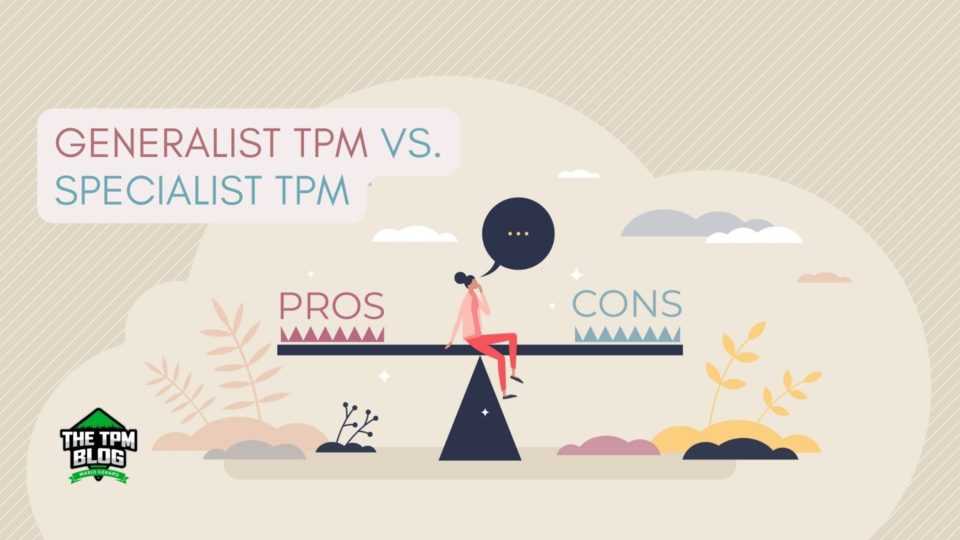
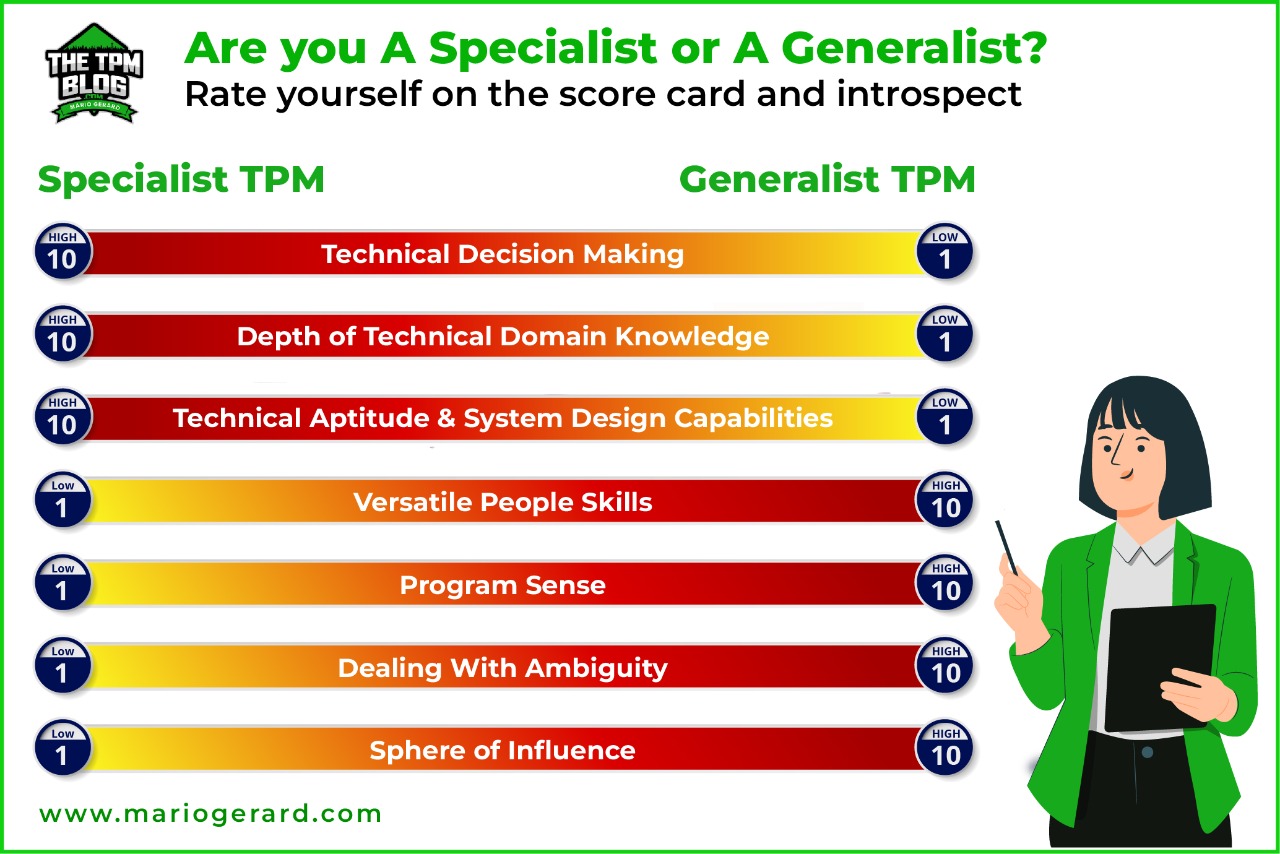






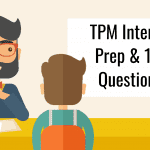
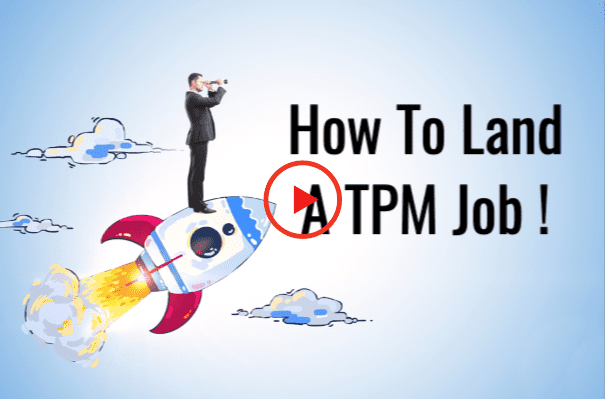





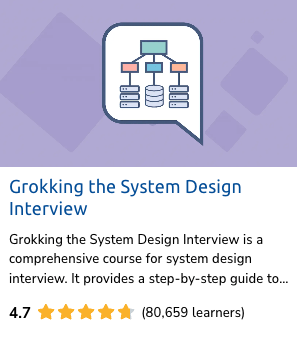

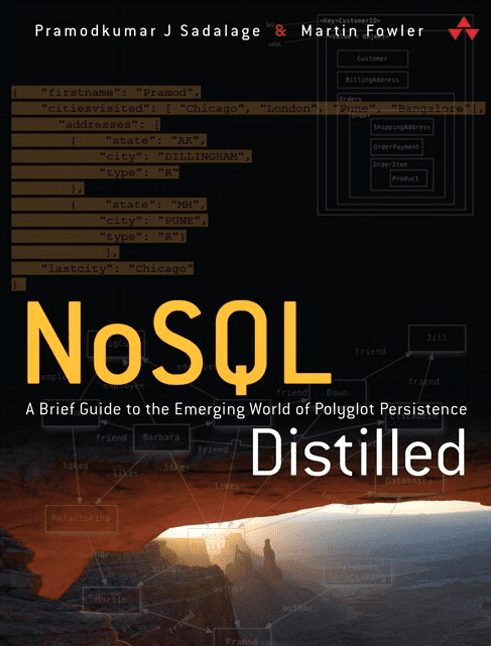
Amazing post and a real eye-opener. I am currently working as a Senior TPM in a tech startup, but I was really confused about whether I am playing the right role for a TPM here when I see the job description of the role in other companies. Turns out I am a bit more inclined towards the generalist TPM role since I deal with founders and C-level executives and do not focus on one scrum team per se. I wanted to ask a question – Coming from zero technical background or experience but with an MBA degree, is it possible to shift from a generalist to a specialist role?
What a wonderful post. Thanks for the contribution for the TPM community.
Hi, I have experience in Program management but looking to grow on the TPM side, Need help in taking training and placements.
👌🏽
Worth read for TPM community.
Excellent. It will be an eye-opener for the aspiring carrier progressive mind folks and as well as the entrepreneurs to consider and choose talented people in the market Best wishes. Please forward this article to the Times of India daily they publish which attract more persons to read and react. Kannabiran